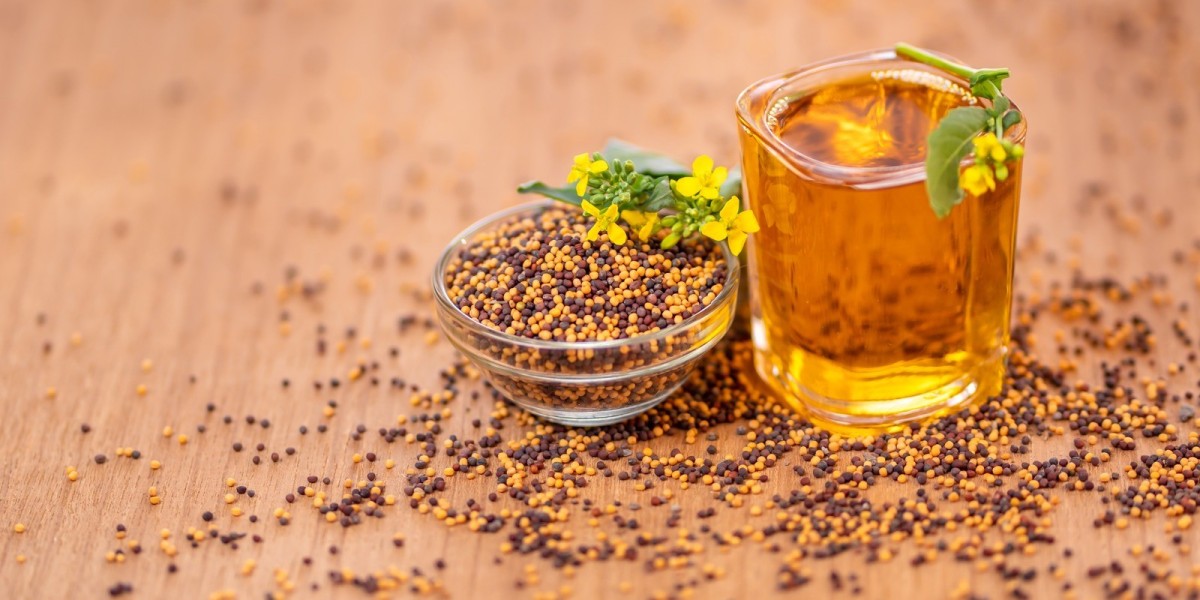Mustard oil, derived from the seeds of the mustard plant, has been a staple in many kitchens, especially in South Asian cuisine. Beyond its culinary uses, mustard oil offers a myriad of health benefits and applications in traditional medicine. In this post, we will explore the numerous benefits of mustard oil, the various ways it can be incorporated into your daily life, and touch upon its market dynamics, particularly the price of mustard oil in Pakistan.
What is Mustard Oil?
Mustard oil is made by pressing the seeds of the mustard plant. It is characterized by its pungent flavor and aroma, which many find appealing. It is rich in monounsaturated fats, polyunsaturated fats, and omega-3 fatty acids, making it a heart-healthy oil option. Its distinct flavor makes it a popular choice for cooking, especially in regional dishes across India, Bangladesh, and Pakistan.
Nutritional Profile of Mustard Oil
Before diving into its benefits, let's take a closer look at the nutritional components of mustard oil:
- Fatty Acids: Approximately 60% of mustard oil consists of monounsaturated fats, which are beneficial for heart health. It also contains omega-3 and omega-6 fatty acids.
- Vitamins: Mustard oil is rich in vitamins E and K, both of which are crucial for maintaining overall health.
- Antioxidants: The oil contains compounds that have antioxidant properties, helping to neutralize harmful free radicals in the body.
Health Benefits of Mustard Oil
1. Heart Health
One of the primary benefits of mustard oil is its positive impact on heart health. The monounsaturated fats in mustard oil help reduce bad cholesterol levels (LDL) and increase good cholesterol levels (HDL). This can lower the risk of heart disease and improve overall cardiovascular health.
2. Anti-Inflammatory Properties
Mustard oil contains compounds such as selenium and magnesium, which have anti-inflammatory properties. Regular consumption can help reduce inflammation in the body, which is linked to various chronic diseases, including arthritis and heart disease.
3. Antimicrobial Effects
The oil is known for its antimicrobial properties, making it effective against certain bacteria and fungi. This quality makes it a popular choice in traditional medicine for treating infections and promoting skin health.
4. Skin Care
Mustard oil is commonly used in skincare for its moisturizing properties. It can help hydrate the skin, reduce dryness, and even treat conditions like eczema. The presence of vitamin E also aids in preventing signs of aging and improving skin texture.
5. Hair Health
Many people use mustard oil as a natural remedy for hair care. It can nourish the scalp, promote hair growth, and add shine to hair. Its antibacterial properties can also help in preventing dandruff and other scalp conditions.
6. Pain Relief
Topical application of mustard oil is known to provide relief from muscle and joint pain. It is often used in massages for its warming effect, which can improve blood circulation and soothe sore muscles.
7. Digestive Health
Incorporating mustard oil into your diet can aid in digestion. It stimulates the production of bile, which is essential for fat digestion. Moreover, its natural laxative properties can help relieve constipation.
8. Weight Management
While it's important to consume oils in moderation, the monounsaturated fats in mustard oil can promote a feeling of fullness. This can help control appetite and support weight management when combined with a balanced diet.
9. Diabetes Management
Some studies suggest that mustard oil may help regulate blood sugar levels. The presence of healthy fats can enhance insulin sensitivity, making it a suitable option for those managing diabetes.
Culinary Uses of Mustard Oil
Mustard oil's unique flavor makes it a versatile ingredient in various dishes. Here are some popular culinary uses:
- Cooking: It is often used for frying and sautéing due to its high smoke point.
- Marinades: Its robust flavor enhances the taste of marinades for meats and vegetables.
- Dressings: Mustard oil can be used in salad dressings for a zesty kick.
- Pickling: It is a traditional ingredient in pickling, adding flavor and preserving the vegetables.
How to Use Mustard Oil
When incorporating mustard oil into your routine, consider the following tips:
- For Cooking: Use it in moderation due to its strong flavor. Start with a small amount and adjust according to your taste preference.
- For Skin: Apply a small amount directly to the skin or mix it with other oils for enhanced benefits.
- For Hair: Massage it into your scalp and hair, leave it on for a few hours or overnight, then wash it out with shampoo.
Mustard Oil Price in Pakistan
In Pakistan, the price of mustard oil can vary significantly based on several factors, including quality, brand, and region. As of the latest data, prices typically range from PKR 150 to PKR 250 per liter, but this can fluctuate due to market conditions, supply chain factors, and seasonal changes. The increasing demand for mustard oil, especially for cooking and traditional remedies, has made it a sought-after commodity in the country.
Factors Influencing the Price
Harvest Yield: The price of mustard oil can be affected by the yield of mustard crops. Poor harvests can lead to higher prices.
Import and Export Dynamics: Changes in import tariffs, trade policies, and global market trends can impact local prices.
Consumer Demand: With growing awareness of health benefits, the demand for mustard oil has increased, influencing prices.
Brand and Quality: Premium brands that offer organic or cold-pressed mustard oil tend to have higher prices compared to standard options.
Conclusion
Mustard oil is more than just a cooking ingredient; it is a powerhouse of health benefits that can enhance your overall well-being. From promoting heart health to aiding in skin and hair care, the advantages of this oil are numerous. As you consider incorporating mustard oil into your diet and lifestyle, it’s also important to stay informed about market prices, especially in regions like Pakistan where local factors can significantly influence costs.
By understanding both the health benefits and economic aspects of mustard oil, you can make informed choices that cater to your health needs and budget. Whether you use it for cooking, skincare, or haircare, mustard oil can be a valuable addition to your daily routine.







